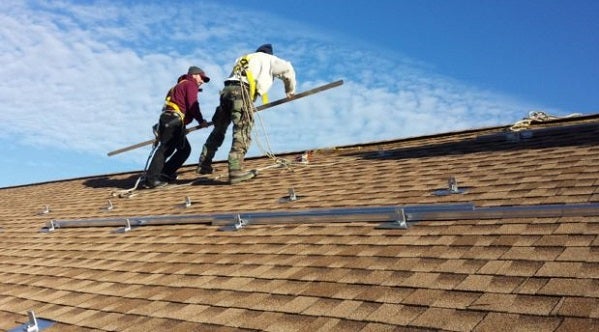How the permitting process can make it easier, or harder, to go solar


When one thinks about going solar, many questions come to mind. How large of a system should I install? How much electricity will I produce? How will my solar panels look? Far less common, but no less important, are questions about solar permitting. Solar permitting is the process through which your system is approved for installation by your local government. When executed effectively, local permitting can significantly streamline the installation experience for homeowners; in other cases, it can add cost and burdensome delays.
Before a solar array can be installed and start producing electricity, it must first be approved through a local permitting process. Local permitting seeks to ensure that a proposed solar array will be structurally and electrically sound. The typical municipal permitting process is twofold: the permit applicant (typically the solar installer) submits an application with information on system design and electrical engineering; if approved, the system can be installed, after which it will undergo a final inspection by local permitting officials. Along with utility permission to operate, this local approval is required to “flip the switch” on your solar array.
Beyond this basic model, the specific nature local solar permitting is incredibly diverse, varying from county to county and city to city. There are nearly 20,000 different municipal solar permitting requirements across the country. This high degree of inconsistency makes it difficult for solar installers to navigate permitting application processes across the different municipalities in which they work. Installers spend a good deal of time in the permitting process because they are required to submit different applications in different formats to different permitting offices. While some localities’ process is highly streamlined, others are lengthy and burdensome. This increases costs for solar customers.
Across the country, roughly 60% of the total cost of a solar PV system is comprised of soft costs. These are the non-hardware costs such as customer acquisition, labor, and permitting. Accordingly, a lengthy, burdensome, or convoluted permitting process can add significantly to the cost of going solar. It’s estimated that local permitting and inspection adds about $0.50 per watt to residential install costs. Basic inconsistencies in permitting processes can cost consumers up to $2,500 on a typical 5 kW system. That’s a significant portion of their total system costs.
While inefficient and inconsistent local permitting processes can ratchet up your solar price tag, there is good news! Instituting efficient, streamlined permitting practices (consistent across regions) can actually reduce the cost of going solar, and make the process easier and more accessible for homeowners.
“Most Virginia solar installers are small operations, there is a tremendous opportunity for local permitting jurisdictions to help these small business,” notes Aaron Sutch, VA SUN Program Director. “By adopting best practices aimed at streamlining the solar installation process, municipalities can help foster growth for local installers.”
Solar installers, homeowners, and permitting officials alike agree that local permitting can be improved by:
- Making permitting application information publicly available;
- Allowing installers to submit their permits online;
- Capping the number of days that officials have to approve permit applications;
- Reducing the time between permit approval and system inspection;
- Creating an expedited permit process for small residential systems; and
- Reducing municipality-specific permit requirements, working towards regional permitting consistency.
More people go solar when the process is made simpler, more transparent, and accessible.
In Arlington County, officials used the increasing rate of residential solar installations to implement an improved solar permitting process. Most significantly, the County moved to require only one permit application document, as opposed to multiple application forms.
“To get a solar system permitted in Arlington County, the only paperwork required is the single page electrical permit form,” said Chris Somers of the Arlington Initiative to Rethink Energy.
The County government implemented an online permitting portal through which applicants are able to track the status of their permit online, saving time on approval notification. With its efficient solar permitting procedures in place, Arlington has seen a steady stream of solar permit applications filed in recent years. Through the Arlington Solar Co-op and Potomac Solar Co-op alone, more than 85 homes have gone solar, facilitated in no small part by Arlington’s improved solar permitting.
